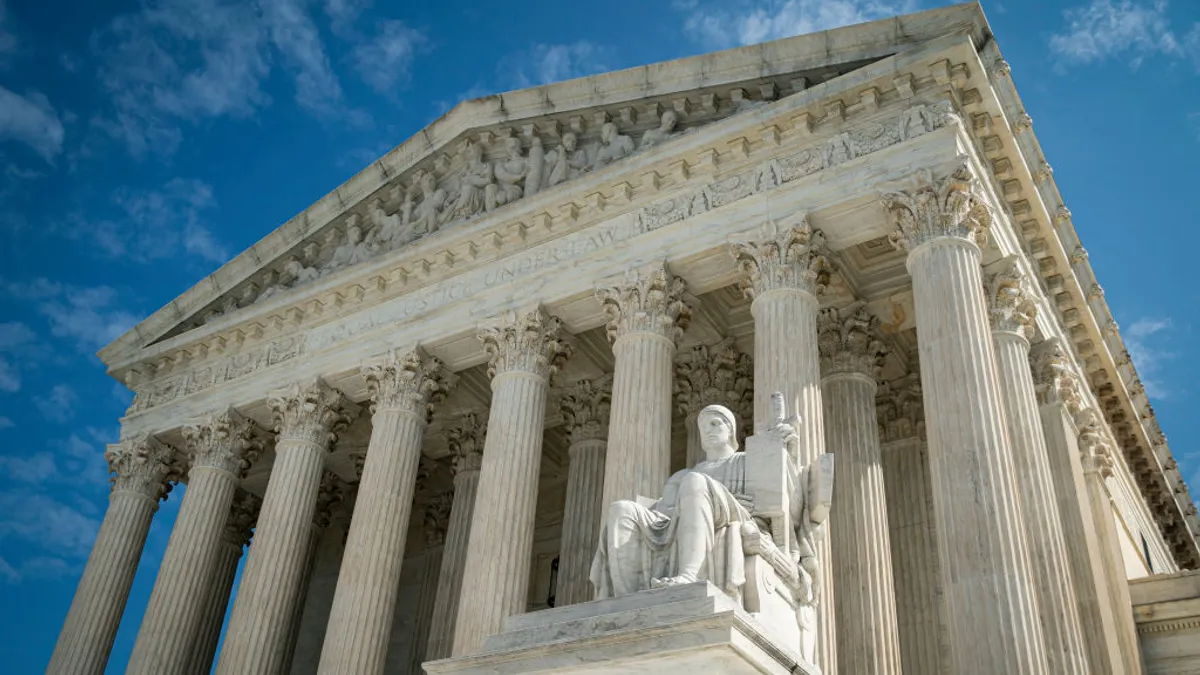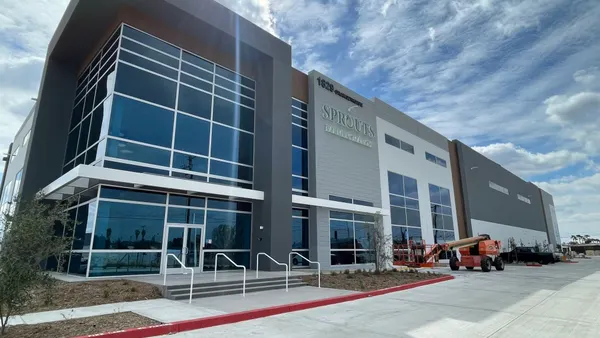Dive Brief:
- The U.S. Supreme Court issued a stay on the Occupational Safety and Health Administration's COVID-19 vaccination emergency temporary standard (ETS) in a per curiam decision published Thursday.
- However, the court issued a separate per curiam opinion dissolving injunctions placed on a vaccination mandate for healthcare workers issued by the Centers for Medicare and Medicaid Services.
- The Food Industry Association (FMI) and National Grocers Association (NGA) separately applauded the ruling, saying in statements that the mandate would have burdened grocery retailers that are already grappling with labor and supply chain pressures.
Dive Insight:
The NGA and FMI have been vocal opponents of the ETS, fearing it would drive some workers to quit and deepen grocers’ labor woes.
The two grocery trade groups also noted in their support of the High Court’s ruling that their members’ pharmacies have played a vital role in COVID-19 vaccination access to both their workers and the general public.
“We support efforts to increase vaccination rates that will not place added pressure on an already strained food supply chain and labor force,” Greg Ferrara, NGA president and CEO, said in a statement.
In a statement applauding the ruling, SpartanNash President and CEO Tony Sarsam said the food distributor and grocery retailer was prepared to comply with the mandate.
“[We] will continue to strongly encourage vaccination, and administer them throughout our pharmacies,” Sarsam said. “However, we agree with the ruling since we felt the ETS placed a burden on businesses that are already battling the most challenging labor market and supply chain environment we have ever faced."
Several of the justices hinted during oral arguments on Jan. 8 that the issue of whether to stay OSHA's ETS came down to the agency's statutory authority granted to it under the Occupational Safety and Health Act. Ultimately, the majority determined the ETS' challengers were likely to succeed on the merits of their claim that Secretary of Labor Marty Walsh lacks the authority to issue such requirements.
"This is no 'everyday exercise of federal power,'" the High Court wrote, citing its own precedent stating that it expects Congress to "'speak clearly when authorizing an agency to exercise powers of vast economic and political significance.'"
In its decision upholding the CMS mandate, however, the court held that Secretary of Health and Human Services Xavier Becerra acted within the authority conferred upon him by Congress.
In a statement on Thursday, Walsh said he was "disappointed" with the court’s decision, calling it "a major setback to the health and safety of workers across the country." He noted that OSHA would continue to hold businesses accountable for protecting workers as part of its COVID-19 National Emphasis Program and under its General Duty Clause.
Management-side attorneys who spoke to sister site HR Dive said they were not shocked by the outcome. "I can't say I was surprised by the decision," said Melissa Bailey, shareholder at Ogletree Deakins. "I think the writing was on the wall given some of the questions the justices asked."
But the OSHA ETS ruling is notable in that a more tailored standard from the agency could be viewed more favorably by the justices, according to Sean Marotta, partner at Hogan Lovells. It remains unclear how expansive such a standard would be, he added.
For the moment, employers should note that "it's back on them to decide whether they want to have a vaccine mandate," Marotta said. "They unfortunately can't rely on OSHA for uniformity."
Employers should still be mindful that they may be subject to certain executive orders or requirements instituted by state OSHA plans, said Catherine Barbieri, co-chair of Fox Rothschild's national labor and employment department. For example, Minnesota's state OSHA, MNOSHA, had adopted the federal ETS but announced Thursday that it would suspend enforcement pending future developments.














